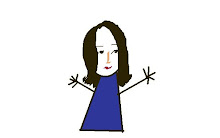I first used a (non-Wikipedia, anyway) wiki in class for a Intellectual Freedom project on Street Lit. This wiki from ALA provided us with a wealth of resources that we might not have found otherwise as well as a solid overview of the issues of how to integrate these materials into collection development policies. For a topic like this with a lot of nontraditional sources, it's a great way to centralize information in a coherent way-a blog requires more sustained commitment and commentary.
This semester, we have a wiki in one of our courses in lieu of a Learn at UW page, which I think works better for the types of information we are transmitting to each other (storytime ideas, links, so on). I think they are far better than Learn at UW-type sites for classes that will be offered again another semester, as our instructor pointed out, since the information doesn't have to be continually re-posted. The layout is also prettier...yes, I'm that shallow...
I couldn't get in to actually edit on the PB Works wiki, but judging from several of the other 23 Things bloggers that I read and their followers, it wasn't just me. It's cool that it's as simple as this:
[http://23thingsandamanda.blogspot.com/.blogspot.com | Reference Course ]
I feel compelled to link to this classic clip on Wikipedia. This was right around the time everyone at my college realized our Wikipedia page was pretty much an extact copy of the admissions site. Now, major corporations hire "web 2.0 consultants" to manage undesirable comments on wikipedia, twitter, and blogs. More than anything, that shows to me the importance of learning all of these applications and software programs. They're a part of the American business model at this point. Libraries, although we would never interfere with their content to that extent, need to learn how to use them to find new ways to reach our patrons.
Subscribe to:
Post Comments (Atom)

No comments:
Post a Comment